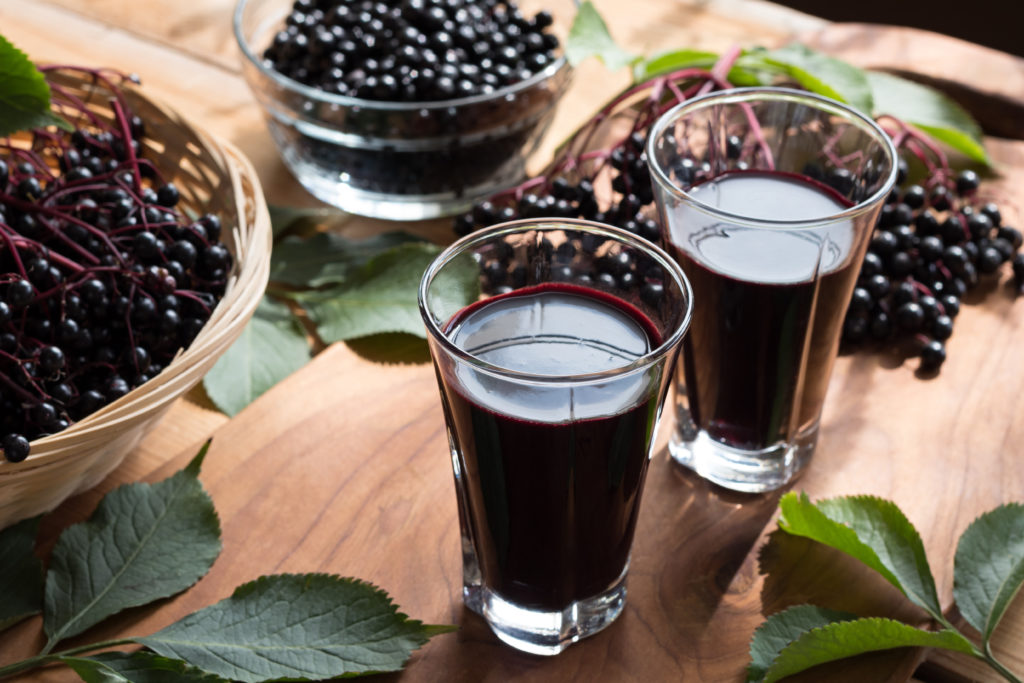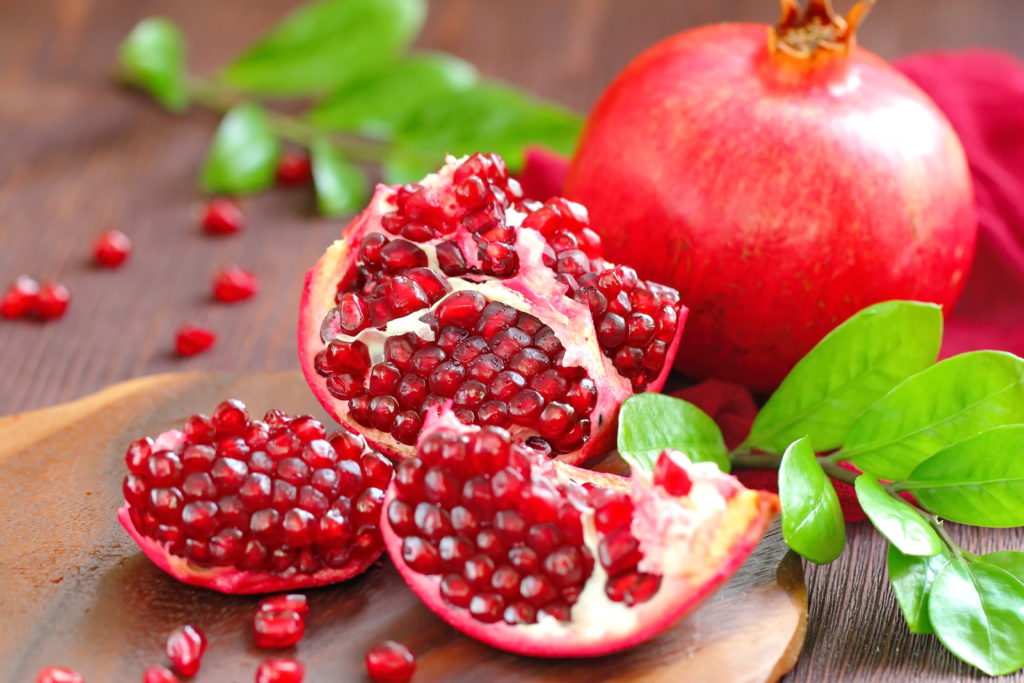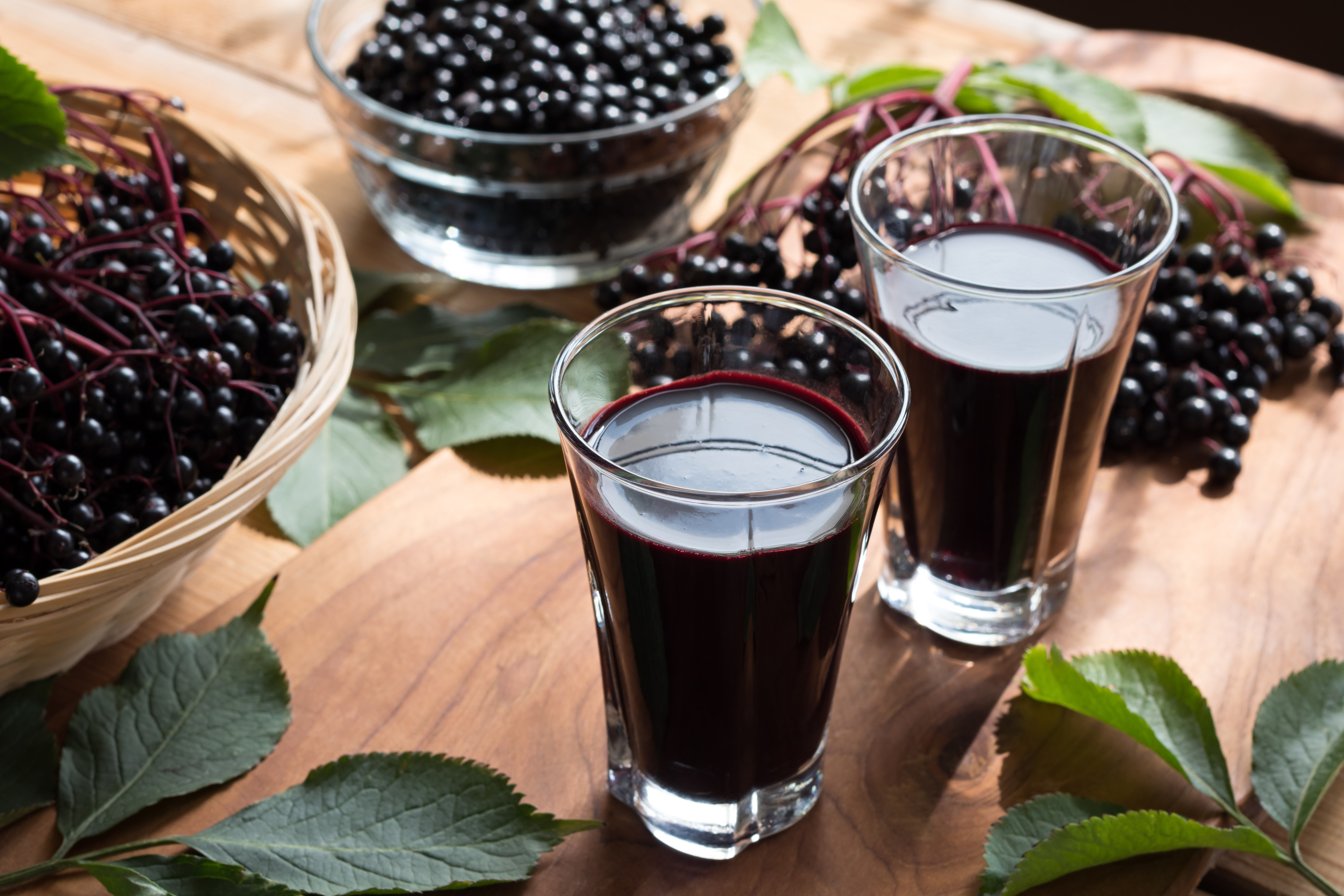With the flu season encroaching, many of us are in search of methods of ‘spicing’ up our immune performance to battle influenza, without the use of medication. One of the options that are making headlines due to its capacity to offer protection against flu is the elderberry.

It is not that flu is so severe, it is the fact that it lasts super long. Just imagine three weeks of headaches, running nose, and feeling dehydrated. Overwhelming, right? If you haven’t gotten the flu yet, then know the threat is real. However, don’t fret. There is a solution.
What is Elderberry?
It is a common shrub spread widely across regions of North America and Europe. Its scientific name is Sambucus nigra. Ripe elderberry has a tart, sharp yet refreshing taste. Traditionally, the elder’s fruit and flowers were used to make jam and seasonal drinks. On top of that, it was believed to have the ability to fortify a person’s immune system. Modern evidence suggests this claim to be correct. This is what modern research has to say about elderberries –
Natural chemicals present in elderberry
Based on research conducted by the University of Sydney, elderberries contain antiviral properties. These properties can protect as well as fight an infection that has already occurred. Nonetheless, in the Journal of Functional Foods, researchers reported that substances present in elderberries could prevent the influenza virus from entering the human body and replicating in the human cells.
The antiviral properties present in elderberry is due to the anthocyanidins (plant pigments) it contains. These anthocyanidins possess the antioxidant effect, meaning they can protect cells from becoming damaged by the influenza virus.
So, how does this happen?
Elderberries have the potent of directing antiviral effect against the flu virus. This is by inhibiting the early stages of the infection by blocking the viral proteins responsible for both the entry and attachment into the host cells. The host cells are human cells.
Does elderberry syrup work?
There are many commercially famed elderberries syrups available in the market. Investigators also analyzed these syrups. The scientists found that the phytochemicals present in the syrup had a mild inhibitory effect when the influenza virus was just about to infect the human cell.
However, after the human cell contained the infection, the same chemicals were significantly effective in preventing the virus from propagating. Nevertheless, researchers found that applying the elderberry solution boosted the cells’ own reaction against the attacking influenza virus.
Therefore, the syrup can work. Apart from elderberries, you can explore other anthocyanidin-rich fruits that will give you a similar flu-fighting effect. They include:

- Grapes
- Pomegranates
- Red onions
- Blueberries
- Purple sweet potato
- Kidney beans
- Acai berries
Final Thoughts
From all the studies and research done on elderberries, we can confidently say the elderberries can offer protection against the influenza virus. On top of that, they can inhibit replication of the influenza virus on the human cells. Therefore, you can take them even after getting the flu.
Modern drugs can work; however, the side effects that come with these drugs can sometimes be unbearable. Add elderberry in your medicine cabinet, and you’ll indeed be ready to face the cold season.


